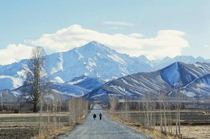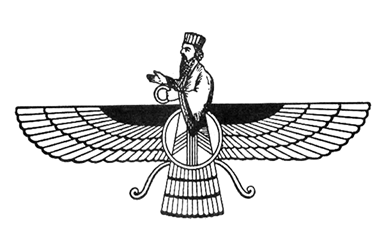Afganistanembassy.org
History of Afghanistan
 Though the modern state of Afghanistan was founded or created in 1747 by Ahmad Shah Durrani, the land has an ancient history and various timelines of different civilizations. Excavation of prehistoric sites by Louis Dupree, the University of Pennsylvania, the Smithsonian Institution and others suggests that humans were living in what is now Afghanistan at least 50,000 years ago, and that farming communities of the area were among the earliest in the world.
Though the modern state of Afghanistan was founded or created in 1747 by Ahmad Shah Durrani, the land has an ancient history and various timelines of different civilizations. Excavation of prehistoric sites by Louis Dupree, the University of Pennsylvania, the Smithsonian Institution and others suggests that humans were living in what is now Afghanistan at least 50,000 years ago, and that farming communities of the area were among the earliest in the world.
Afghanistan is a country at a unique nexus point where numerous Indo-European civilizations have interacted and often fought, and it was an important site of early historical activity. Through the ages, the region has been home to various people, among them the Aryan tribes, such as the Scythians, Bactrians, Arians, Arachosians, etc.
It also has been conquered by a host of people, including the Median and Persian Empires, Alexander the Great, the Seleucids, the Indo-Greeks, the Indians, Turks, and Mongols. In recent times, military operations from the British, Soviets, and most recently by the United States and their allies have taken place. On the other hand, native entities have invaded surrounding regions in Iranian plateau, Central Asia and Indian subcontinent to form empires of their own.
Pre-Islamic period
In 2000 BC, Indo-European-speaking Iranians are thought to have been in the region of Afghanistan. It is unlikely that the Indo-Iranians themselves originated in Afghanistan although they did migrate from there south towards India and west towards Persia, but they also migrated into Europe via north of the Caspian. These Indo-Iranians set up a nation which became known as Airyānem Vāejah. Original homelands of the Indo-Iranians have been proposed as Anatolia, Kurdistan, Central Asia, Iran, or India, with the directions of the historical migration varying accordingly. Later, during the rule of Ashkanian, Sasanian and after, it was called Erānshahr; meaning "Dominion of the Aryans".
 It has been speculated that Zoroastrianism might have originated in what is now Afghanistan between 1800 to 800 BC, as Zoroaster lived and died in Balkh. Ancient Eastern Iranian languages, such as Avestan, may have been spoken in this region around the time of the rise of Zoroastrianism. By the middle of the sixth century BC, the Persian Empire of the Achaemenid Persians overthrew the Median Empire and incorporated Afghanistan (known as Arachosia to the Greeks) within its boundaries.
It has been speculated that Zoroastrianism might have originated in what is now Afghanistan between 1800 to 800 BC, as Zoroaster lived and died in Balkh. Ancient Eastern Iranian languages, such as Avestan, may have been spoken in this region around the time of the rise of Zoroastrianism. By the middle of the sixth century BC, the Persian Empire of the Achaemenid Persians overthrew the Median Empire and incorporated Afghanistan (known as Arachosia to the Greeks) within its boundaries.
Alexander the Great entered Afghanistan in 330 BCE. Following Alexander's brief occupation, the successor state of the Seleucid Empire controlled the area until 305 BCE, when they gave most of the area to the Hindu Mauryan Empire as part of an alliance treaty.
During Mauryan rule, Hinduism and Buddhism became the dominant religions in the region. The Mauryans were overthrown by the Sunga Dynasty in 185 BCE, leading to the Hellenistic reconquest of Afghanistan by the Greco-Bactrians by 180 BCE. Much of Afghanistan soon broke away from the Greco-Bactrians and became part of the Indo-Greek Kingdom. The Indo-Greeks were defeated by the Indo-Scythians and expelled from most of Afghanistan by the end of the 2nd century BCE.
During the first century, the Parthian Empire subjugated Afghanistan, but lost it to their Indo-Parthian vassals. In the mid to late 1st century AD the vast Kushan Empire, centered in modern Afghanistan, became great patrons of Buddhist culture. The Kushans were defeated by the Sassanids in the third century. Although various rulers calling themselves Kushanshas (generally known as Indo-Sassanids) continued to rule at least parts of the region, they were probably more or less subject to the Sassanids.The late Kushans were followed by the Kidarite Huns who, in turn, were replaced by the short-lived but powerful Hephthalites, as rulers of the region in the first half of the fifth century.
The Hephthalites were defeated by the Sasanian king Khosrau I in AD 557, who re-established Sassanid power in Persia. However, the successors of Kushans and Hepthalites established a small dynasty in Kabulistan called Kushano-Hephthalites or Kabul-Shahan/Shahi, who were later defeated by the Muslim Arab armies and finally conquered by Muslim Turkish armies led by the Ghaznavids.
read more
Keep in Touch
Contact Us
Address: 1050 17th, St.
Suite 600 N.W.
Washington, DC 20036
Tel: 202 347-5800
202 347-5800
info@afganistanembassy.com
